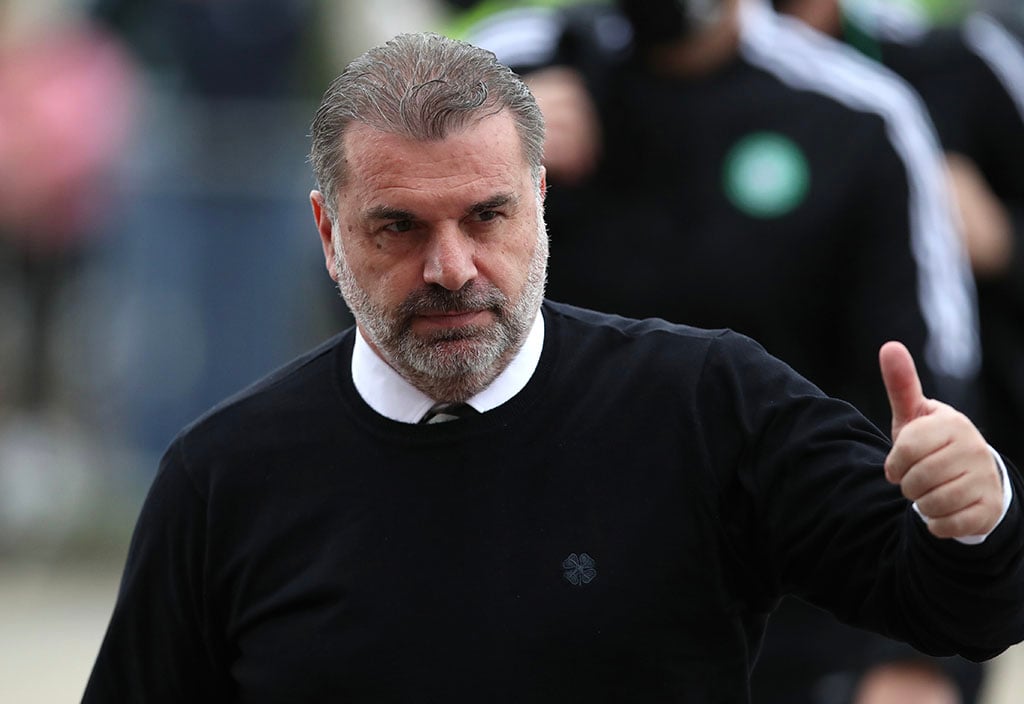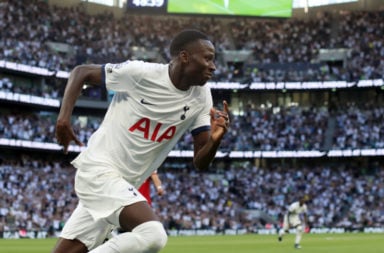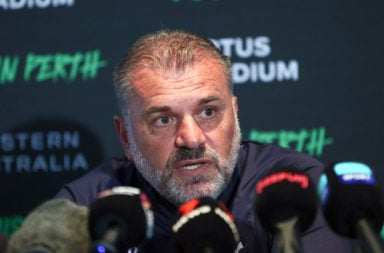For the little Greek-Australian kid who spent many a late night tuning into televised coverage of the old First Division, sharing precious moments with a famously hard father who visibly softened in the presence of the beautiful game, taking charge at one of THE great English clubs represents the sweetly symmetrical realisation of a childhood dream.
Now that Ange Postecoglou has reached this Promised Land? Well, to quote a typically pithy Aussie turn of phrase, he’s not going to die wondering.
Spending the best part of a year researching and then writing Revolution – Ange Postecoglou: The Man, The Methods and The Mastery, due out later this year, it quickly became apparent that this fascinating character is inspired by more than just a free-wheeling desire to play ‘nice’ football.
So you can pretty much ignore the pragmatic pundits and concerned punters predicting that, obviously, Postecoglou will have to temper his philosophy to suit a far more demanding environment. This guy won’t veer off course by even a tenth of a degree. History teaches us that.
And what a history it’s been. Behind the headlines, the trophies won, the wins and losses accumulated, lies a tale of triumph against remarkable odds, complete with Sliding Doors moments, cunning plans, time spent in the wilderness years, bold strokes of maddening genius and, yes, one or two flirtations with the sack. Usually just before he led his team on a spectacular winning run.
There’s been plenty of pain along the way. Setbacks on the international stage, in particular, that would have prompted some to have stepped away from the brutal world of football management.
But take it from someone who spent a bit of time in the old Prahran neighbourhood of Melbourne, chatting with people who had worked with and for Ange, as well as interviewing old pals who had known him since they were little nippers in primary school. He’s not as other men are. Has never been content to take the path of least resistance.
This is a guy who has consistently faced down critics. A dreamer with the drive to bend reality to his will. A character who, at the age of 10, decided he would one day manage a team at the World Cup. Chutzpah? Weapons grade, mate. And backed up by ability.
In terms of influences, everyone I spoke to testified to the part play by his father, Jim, a typically hard-working Greek immigrant who took his family to Australia in 1970 because he and wife Voula wanted a better life for young Angelos and his older sister, Elizabeth.
When the boys in the house would get together to watch football, the seemingly always exhausted dad would direct his son’s attention towards the flair players and the teams who played an expansive game. The great Netherlands sides of 1974 and ’78, obviously. But also the swashbuckling Leeds gang who mixed magic with menace.
Having fallen hard for the great Liverpool team who would enjoy so much success in England and Europe, Ange had his beliefs ingrained at an early age.
Serving as South Melbourne captain when the legendary Ferenc Puskas was manager only strengthened his conviction on how the game should be played. How it must be played, if you’re not merely going to pull off the odd shock result – but consistently dominate even the best opponents.
He has evolved, tactically, over the years. That’s been an absolute necessity in a game as fast-changing as football.
But the principles at play when he took South to play Manchester United and Vasco da Gama at the inaugural FIFA World Club Championships still underpin everything he does. The style that prompted Brisbane Roar fans to christen their club ‘Roarcelona’ remains a template for any Ange team.
Daniel Levy’s first move, once he lured Postecoglou away from Celtic, should really have been to fit that shiny new stadium with seatbelts. Buckle up, Spurs fans. Things are about to get wild.
Entertainment will be guaranteed. Not just on the pitch but in the transfer market, with high player turnover a common facet of his career to date.
Behind the scenes, if previous patterns are repeated, there may well be dissent from players, coaches – possibly even directors – unable or unwilling to understand what the new gaffer is trying to build.
Postecoglou will take any brickbats hurled at him. Quietly sideline the non-believers. And carry on doing what he was hired to do.
Fullbacks will be inverted. Pressing will be on the intense side of frenetic. Bodies will be thrown into the opposition final third with instructions to overload and overpower defences.
Because Ange Postecoglou is nothing if not his own man. He has his tried and trusted methods.
Whether that’s enough to master the toughest competition he’s ever faced, possibly even the most competitive league on earth, is an open-ended question.
Having worked so hard and waited so long to be hand an opportunity in the English game, however, the last thing he’ll do now is wobble or waver.
Have something to tell us about this article?




